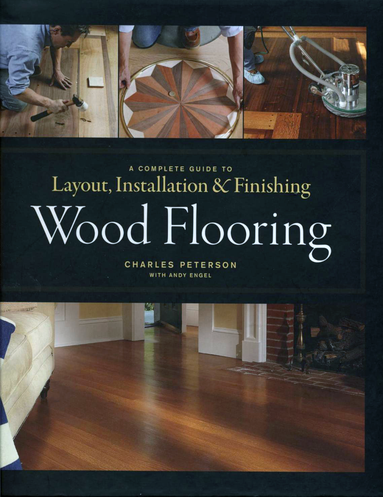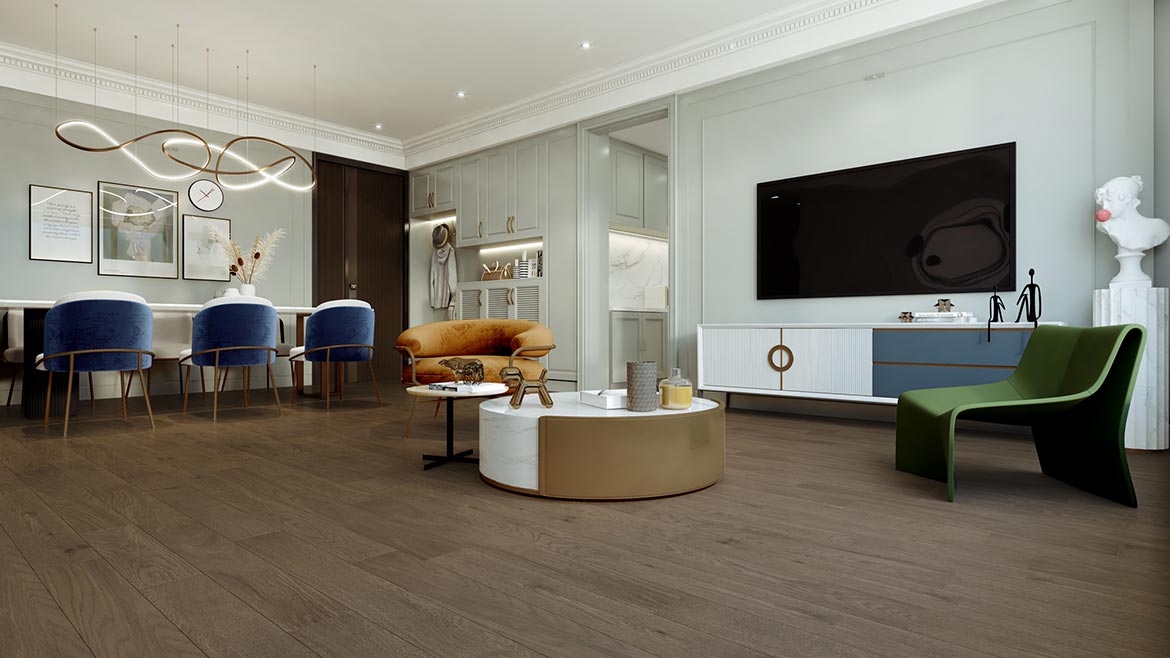Six Ways Engineered Hardwood Floors Bring Value to Consumers

The process used to produce engineered hardwood flooring provides a rigidity to help the flooring combat expansion, contraction, warping and cupping.

Factors like the grade and thickness of the wood layer, the number of layers in the core and the number of finish coats are all determinants of price and warranty.

Most engineered woods come pre-finished with a factory-applied durable coating, which means that the flooring can go years before refinishing is necessary.



In lockstep with the surge in both new home construction and home renovations driven by the coronavirus pandemic has been an increase in the popularity of engineered hardwood flooring. Engineered hardwood floors are made by gluing a veneer of hardwood on top of multiple layers of backing material, typically plywood, which are then glued together. Each layer of plywood is positioned in a different direction to produce a core for the flooring that is dimensionally strong.
The sale of engineered hardwood flooring has increased dramatically since 2018, when Fishman Flooring Solutions entered the market, and demand for these products is expected to remain high in the coming months. Here are six ways that engineered hardwood floors are bringing value to consumers.
Undeniable Beauty
The overall appearance and quality of engineered hardwood has improved a great deal since being introduced to the market more than a half century ago. Today, thanks to technology advances, it is difficult to distinguish many engineered hardwood floors from their solid hardwood counterparts. Said another way, engineered hardwood floors share the same natural and timeless qualities as solid wood floors.
Engineered hardwood flooring also has a variety of other attributes that add value in the marketplace. The veneers used in engineered hardwood flooring are produced from a range of wood species, such as oak, hickory and maple. Consumers can also choose from a variety of finishes, stains and surface effects, such as hand-scraped or wire-brushed that provide a time worn look. There is an assortment of features available, including color variations, knots, holes, and long or short boards in various plank widths. Also, consumers looking for a specific design or style for their spaces have engineered hardwood flooring options from which to choose ranging from traditional to modern to minimalist to contemporary design.
Moisture Tolerance
The process used to produce engineered hardwood flooring provides a rigidity to help the flooring combat expansion, contraction, warping and cupping. As a result, engineered hardwood flooring holds its shape better in high moisture situations than hardwood flooring, making it suitable for use in rooms or basements that are below grade level, as well as kitchens or other rooms that could potentially have moisture issues.
Energy Efficiencies
Engineered hardwood floors provide heat insulation, which helps keep the temperature of the floors and space constant. On cold days, engineered hardwoods help to trap heat, while on hot days, they help to keep heat out. As a result, at a time when energy efficiency is a top priority, many consumers are turning to engineered hardwood flooring rather than other flooring options to help reduce their energy bills.
Durability
When it comes to durability, engineered hardwood floors can more than hold their own against solid wood. Due to their multi-layer plywood core construction, solid wood top layer and polyurethane topcoats, engineered hardwood is tough enough to withstand high foot traffic areas in any residential space, as well as commercial spaces, such as schools, offices, restaurants and retail establishments.
Another appealing aspect of engineered hardwood floors for consumers is that most come pre-finished with a factory-applied durable coating, which means that the flooring can go years before refinishing is necessary. For example, Fishman’s Landmark Interiors Betsy Ross Collection has a 25-year residential use warranty and a five-year light commercial use warranty. In another example, the Landmark Interiors City of Oaks collection has a 35-year residential use warranty.
Minimal Maintenance
Maintaining engineered hardwood floors requires minimal effort, which is great news for busy home and business owners. Generally, regular sweeping and mopping with a clean microfiber cloth and a suitable floor cleaner will help prevent scratches and extend the beauty of the floor for years. However, consumers should always consult the manufacturers for specific cleaning recommendations.
Affordable Price Points and Easy Installation
Finally, engineered hardwood floors are typically less expensive than solid hardwoods, without sacrificing appearance and quality. Factors like the grade and thickness of the wood layer, the number of layers in the core and the number of finish coats are all determinants of price and warranty.
Also, while the best flooring retailers have access to excellent flooring installers, many cost-conscious consumers are choosing to install their own engineered hardwood floors. Depending on their skillset and ability to follow the manufacturer’s directions, this can be a relatively simple installation process.
Looking for a reprint of this article?
From high-res PDFs to custom plaques, order your copy today!












